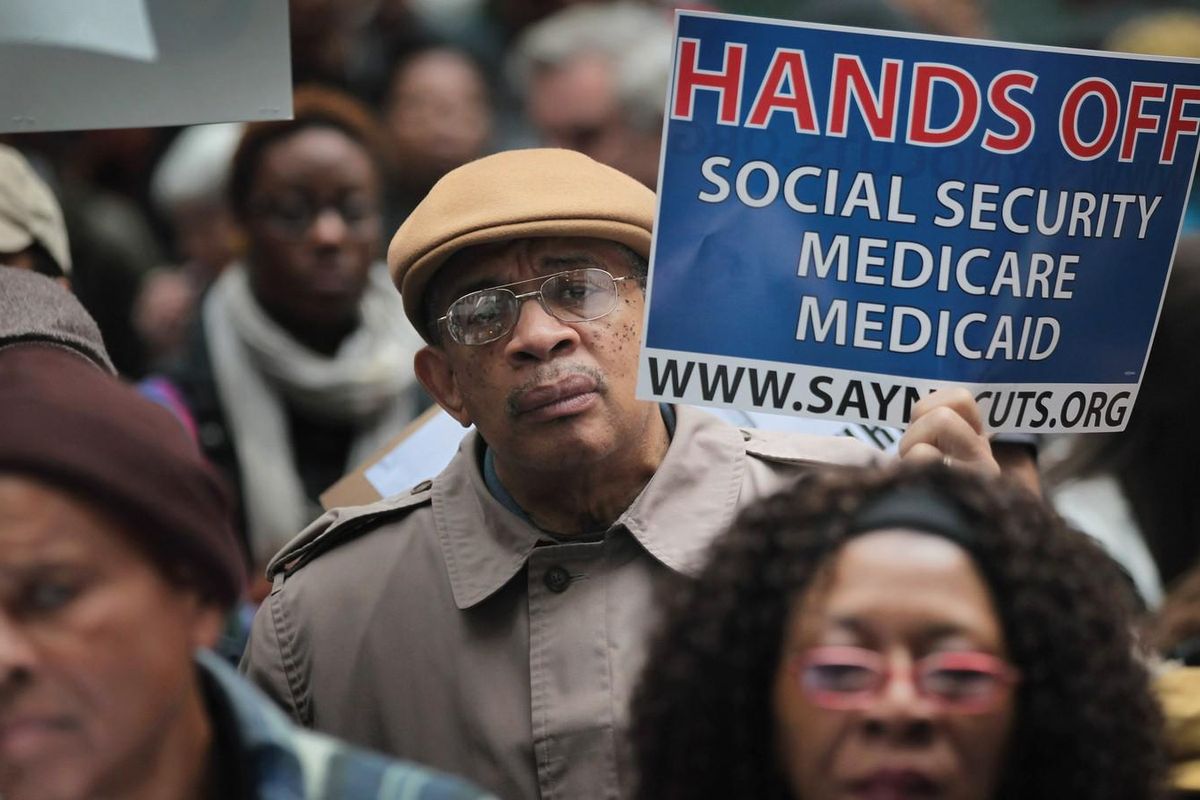
I’m no defender of the cruel and unusual punishment inflicted on the American people by the House Republicans’ “One Big Beautiful Bill” passed late Tuesday night. And it’s important to understand that Medicare as well as Medicaid will take a major hit, nearly $500 billion in cuts over the next decade, according to the Congressional Budget Office.
But the political impact will be far less than the cuts to Medicaid, food stamps, reproductive health, environmental and other program contained in the bill. That’s why I’m interrupting my travels this morning to offer this explainer because how defenders of Medicare and Medicaid talk about these Medicare cuts matters.
Under the bill, Medicare will be subjected to sequestration under the 1997 Balanced Budget Act. Sequestration is an across-the-board cut in government programs that Congress can impose if a spending bill increases the deficit.
Not all programs are affected. Medicaid, Pell Grants, and Social Security benefits are exempt. Medicare, Head Start, housing assistance, public safety grants, and transportation, among many, are not. In theory, defense spending should also be cut, but it was increased under this bill.
CBO estimates this bill’s limited sequestration will impose a four percent across-the-board cut in Medicare funding. This would include payments to both providers (boo!!) and Medicare Advantage plans sold by insurers (yay!!). Since MA plans now cover over 51 percent of seniors and are paid somewhere between 8-20 percent more on average per beneficiary than traditional Medicare, insurers will get hit with most of the cuts.
Now, if this were targeted just at MA plans along with new requirements on how they spent the money (like raising the mandatory medical loss ratio to 90 percent from 85 percent), and the money saved was targeted to preserve Medicaid as it now is (the $500 billion would cover most of the proposed cuts to that program), I might be cheering this aspect of the bill.
But as it stands, this is how MA plans and providers in traditional Medicare will likely respond to sequestration should it make it into the final bill:
- They will reduce access. MA insurers will impose more stringent prior authorization rules, increase claims denials, and impose reductions on the amounts they pay hospitals, doctors and other providers;
- Physician practices will impose limits on patient access for non-essential and less remunerative services like wellness visits and preventive care. Private equity, insurer and some hospital-owned physician practices will speed up the treadmill that already has a typical office visit down to 13 minutes or less;
- Fewer doctors in many areas of the country will accept new Medicare patients, resulting in longer wait times and more difficulty finding providers, especially specialists; and
- Some of those extra benefits in MA plans will disappear or be made more difficult to use. Many plans may impose higher out-of-pocket costs; and
- The cuts will be especially damaging in rural areas already suffering from hospital closures and physician shortages. Seniors and the disabled will have to travel farther for care.
CBO estimated Congress could save nearly $1 trillion over the next decade by simply cutting MA plan payments down to the same amount providers would have received had their beneficiaries remained in traditional Medicare. Instead, they crafted a sequestration that will make it harder and more expensive for seniors and the disabled to access care.
It is the ways that will affect beneficiaries is what the general public needs to hear about as the bill now moves to the Senate — not the top line dollar number for the cuts.
Reprinted with permission from Gooz News.
- GOP Governor Urges Medicare, Social Security To Be Cut And 'Privatized' ›
- Fox Strains To Justify Trump Extending His Tax Cut For Wealthiest ›
- 'This Will Kill People': House GOP Guts Medicaid For Billionaire Tax Cut ›








